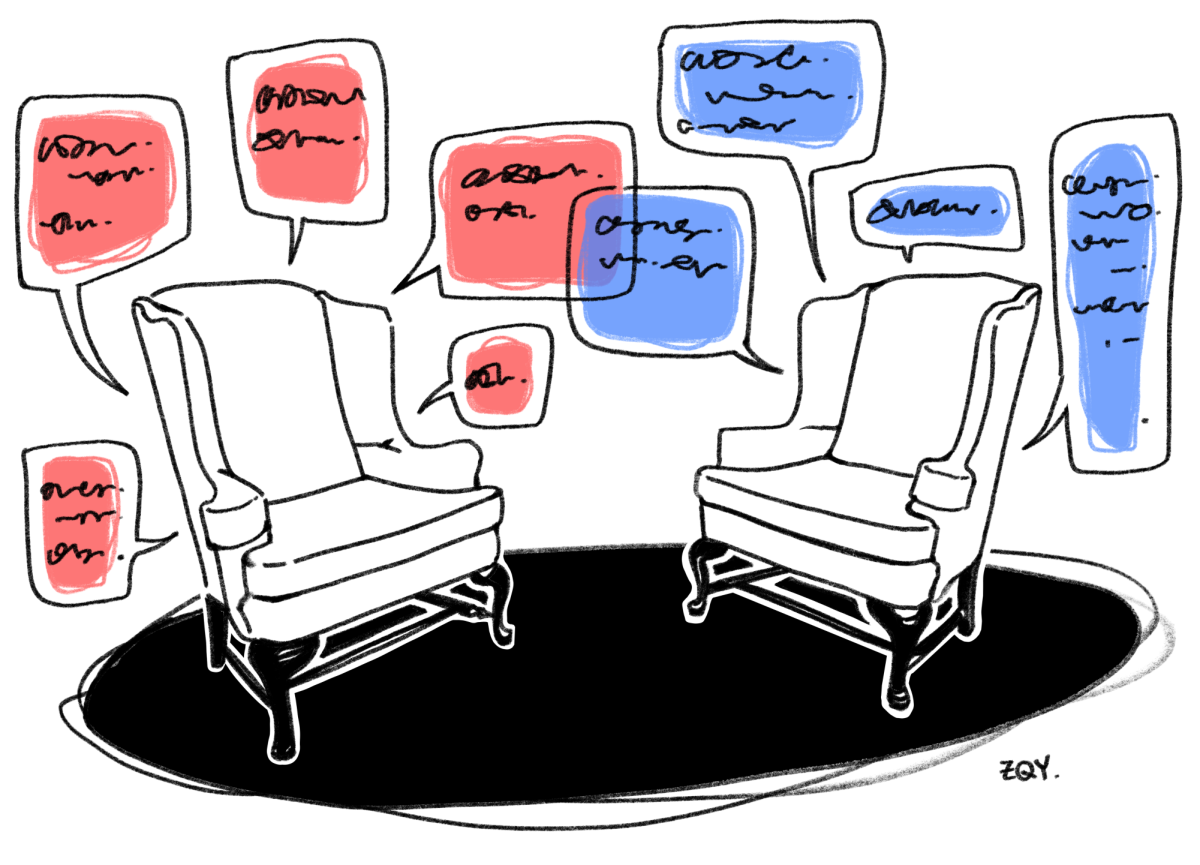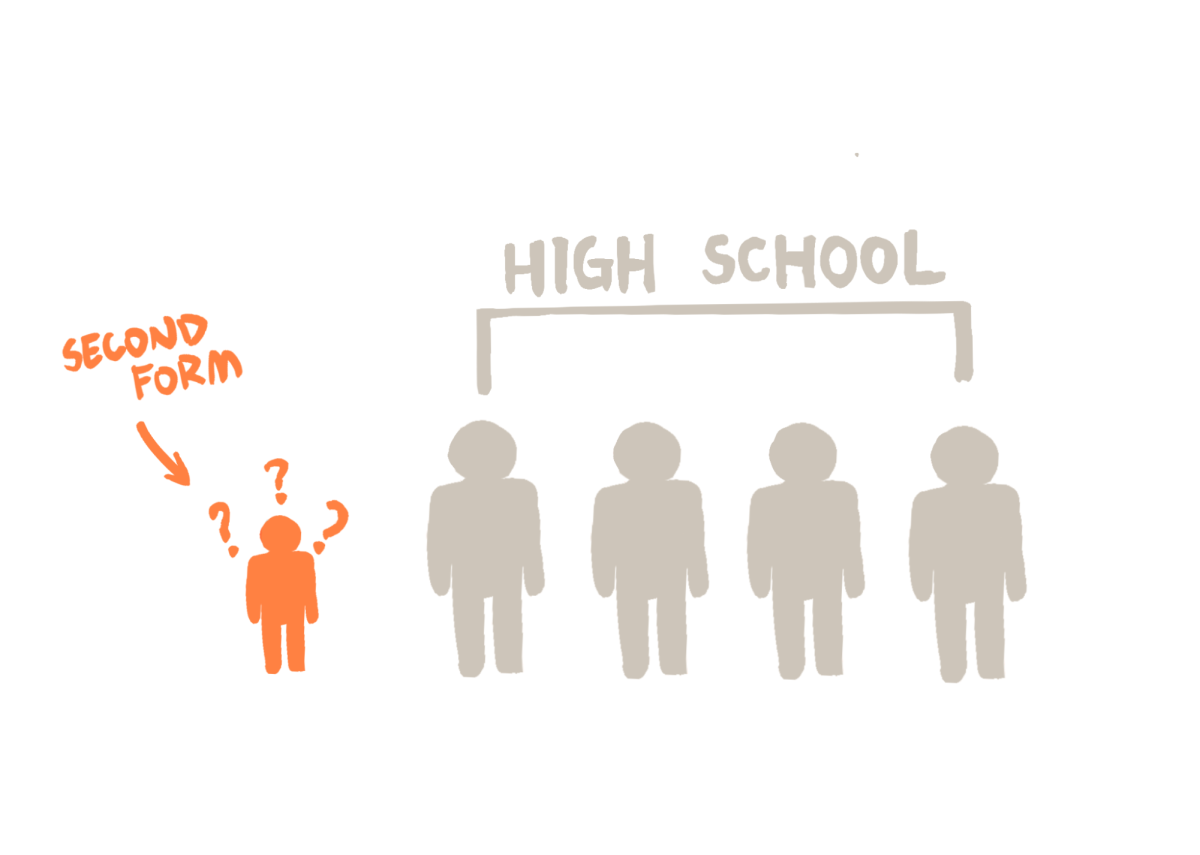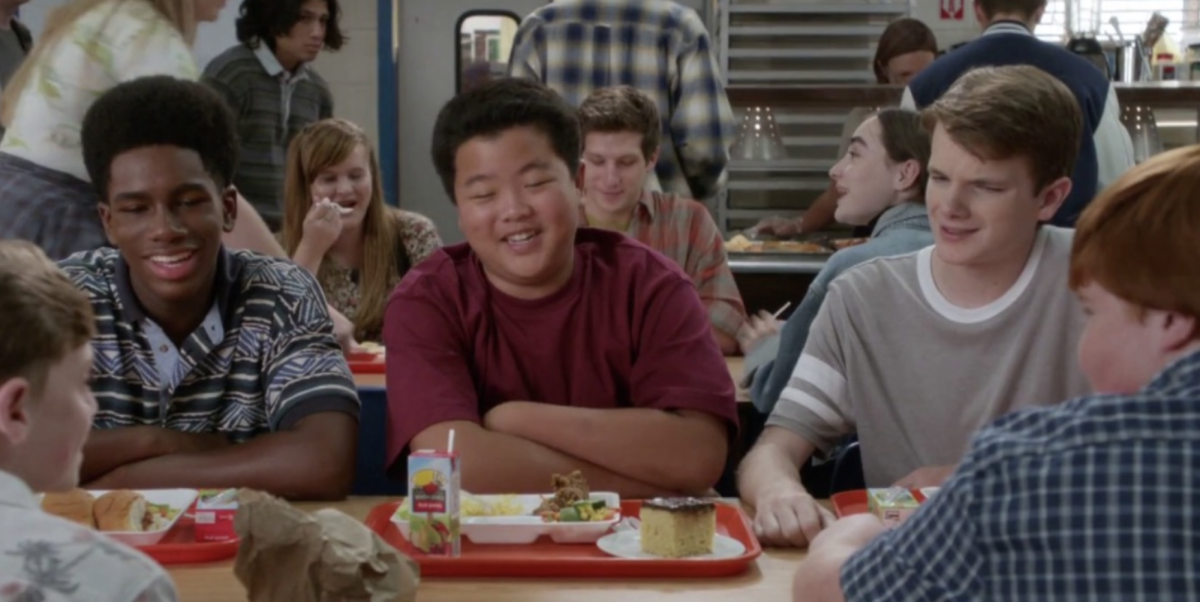It was just another Fourth Form dinner until someone asked that fateful question: What do you think about the new affirmative action ruling? The table immediately went quiet; all I could hear was the person sitting across from me scratching their fork against their plate. After half a minute of awkward silence, we swiftly changed topics. The awkwardness at the table is a testament to one thing: we aren’t having enough conversations about the issues that divide our school—and our country. Instead of letting silence and taboos divide us, I propose a solution to Groton’s polarization: hosting more debates on campus and facilitating access to more viewpoints.
Three decades ago, the arena of politics was just as rough and cutthroat as it is today. But in the last thirty years, the culture around politics—and polarization in particular—has changed significantly. According to an American Perspectives Survey conducted in 2021, less than a third of Democrats have Republican friends. Although the gap between liberal and conservative members of Congress widened only 0.33 points from 1971 to 2021 according to the Pew Research Center, the American Perspectives Survey shows that polarization caused the tolerance of such differences to go down drastically.
This phenomenon of growing polarization has long penetrated the Groton bubble. On the surface, the omnipresent Groton School norms tell students to “practice having courageous conversations” and to not “let one negative interaction keep [them] from participating.” Even the roundtable set up of humanities classrooms is meant to stimulate such conversations.
But these efforts by the school to “have courageous conversations” do not seem to be effective when the discussion is political. At Groton, according to Young Democrats Co-Head Amelia Barnum, our “privilege inherently makes our community an echo chamber.” This could explain why she also believes conservative students “are definitely less likely to share openly” controversial views. Young Republicans Co-Head Arjun Ray ’24 echoed Amelia’s sentiment: “Anyone whose views lie outside of the mainstream orthodoxy that often dominates these environments . . . will, naturally, feel out of place,” he said. Conservative voices are widely known among the Circle to be more hesitant to share their views than liberal voices, largely because of the polarization prevalent across the nation and fear of backlash.
When left-wing commentator Ana Kasparian was asked why she agreed to debate with a right-wing talk show host, she said that it was extremely important to her that Americans don’t see each other merely as “an identity that needs to be super combative with a different” one. In essence, debate is a forum where common ground can be found. At Groton, this would come in the form of Circle Talk–style debate at Groton framed around central political points. Such a debate––when conducted and moderated correctly––would mitigate polarization’s negative effect on campus. Such an earnest conversation about legitimate issues could highlight the ideological similarities and differences of liberalism and conservatism in a respectful and dignified manner. Students would experience principled and nuanced debate: a blueprint to model their political debates and discussions.
Being exposed to new perspectives outside of the “echo chamber” allows Groton students to consider them. But being introduced to such perspectives at a deeper and more nuanced level allows students to truly comprehend a holistic view of a political issue. By bringing these fresh perspectives to the Circle through the form of a debate-style Circle Talk will we create a more respectful and inclusive community.







